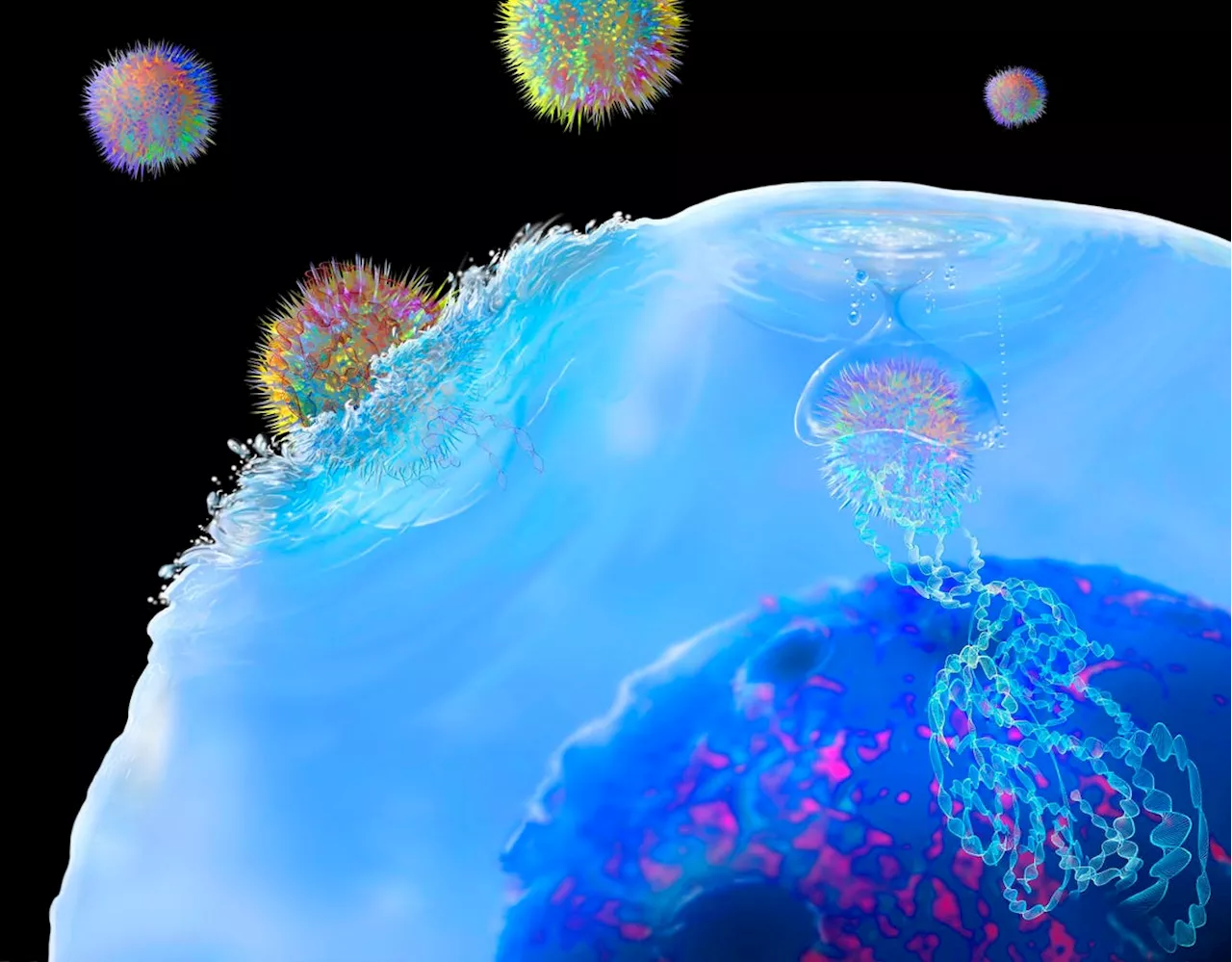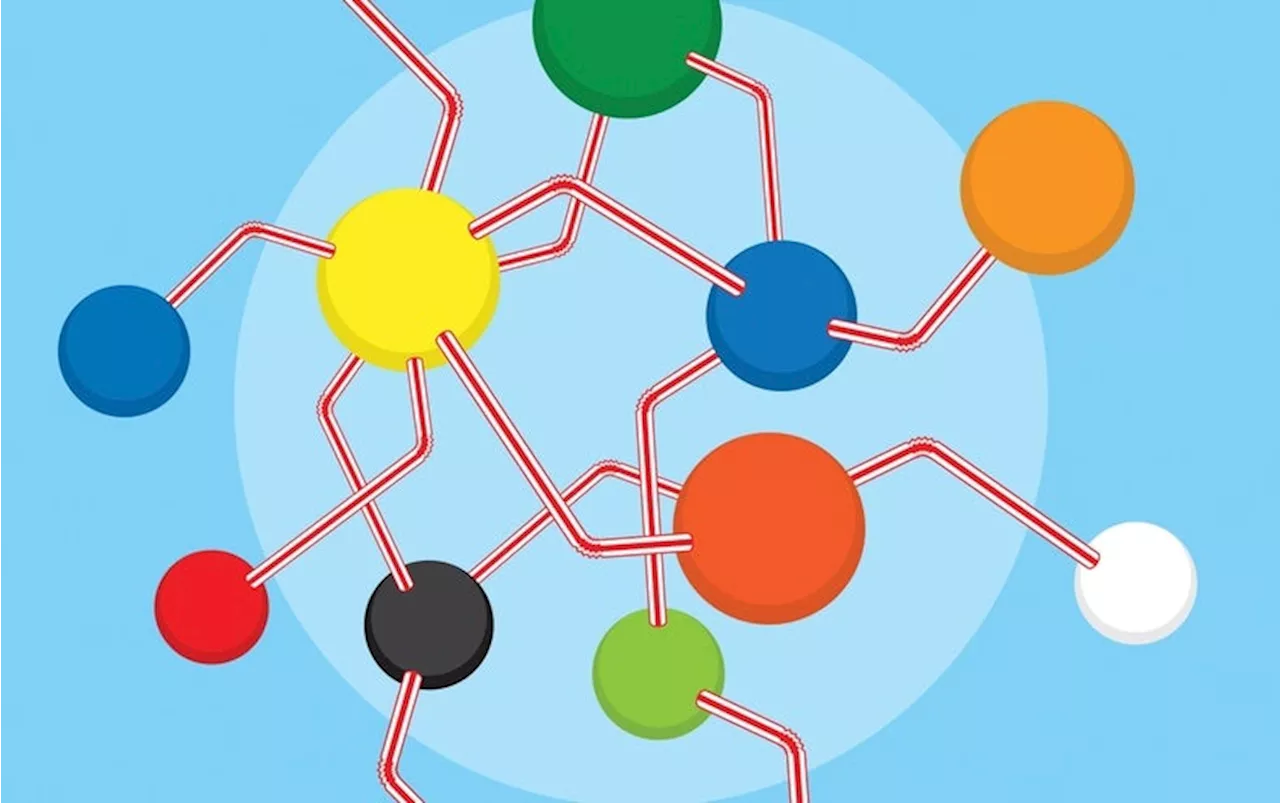Recycling is just as essential in cells as in our more familiar macroscopic world. Cells continuously generate waste products and accumulate damaged components while performing regular functions.
retrieved 2 November 2023 from https://phys.org/news/2023-11-molecular-mechanisms-underlying-lipid-recycling.html
This document is subject to copyright. Apart from any fair dealing for the purpose of private study or research, no part may be reproduced without the written permission. The content is provided for information purposes only.17 hours agoUse this form if you have come across a typo, inaccuracy or would like to send an edit request for the content on this page. For general inquiries, please use ourThank you for taking time to provide your feedback to the editors.
Your feedback is important to us. However, we do not guarantee individual replies due to the high volume of messages.to let the recipient know who sent the email. Neither your address nor the recipient's address will be used for any other purpose. The information you enter will appear in your e-mail message and is not retained by Phys.org in any form.Get weekly and/or daily updates delivered to your inbox.
United States Latest News, United States Headlines
Similar News:You can also read news stories similar to this one that we have collected from other news sources.
 Old Cells Gone Bad: Fighting Senescent Cells With CAR-T TechnologyI am a scientist, businessman, author, and philanthropist. For nearly two decades, I was a professor at Harvard Medical School and Harvard School of Public Health where I founded two academic research departments, the Division of Biochemical Pharmacology and the Division of Human Retrovirology.
Old Cells Gone Bad: Fighting Senescent Cells With CAR-T TechnologyI am a scientist, businessman, author, and philanthropist. For nearly two decades, I was a professor at Harvard Medical School and Harvard School of Public Health where I founded two academic research departments, the Division of Biochemical Pharmacology and the Division of Human Retrovirology.
Read more »
 New study shows how the Ebola virus infects cellsIn a recent study published in Nature Communications, researchers from Karolinska Institutet and the Institute of Molecular Biotechnology have identified a new molecule in cells that is necessary for Ebola and Marburg viruses to infect and spread in the body.
New study shows how the Ebola virus infects cellsIn a recent study published in Nature Communications, researchers from Karolinska Institutet and the Institute of Molecular Biotechnology have identified a new molecule in cells that is necessary for Ebola and Marburg viruses to infect and spread in the body.
Read more »
 New antimicrobial molecule shuts down bacterial growth without harming human cellsScientists have shown how a molecule with broad-spectrum antibiotic activity works by disabling a process vital to bacterial growth without affecting the normal functioning of human cells. The journal mBio published the work, led by researchers at Emory University and Pennsylvania State University.
New antimicrobial molecule shuts down bacterial growth without harming human cellsScientists have shown how a molecule with broad-spectrum antibiotic activity works by disabling a process vital to bacterial growth without affecting the normal functioning of human cells. The journal mBio published the work, led by researchers at Emory University and Pennsylvania State University.
Read more »
 New AI and machine innovations bring fashion recycling closer to realityCETIA, a company in the southwest of France, is pioneering textile recycling solutions with artificial intelligence and machines that can separate complex materials in clothing.
New AI and machine innovations bring fashion recycling closer to realityCETIA, a company in the southwest of France, is pioneering textile recycling solutions with artificial intelligence and machines that can separate complex materials in clothing.
Read more »
 New Chemical Process Offers Hope for Mixed-Plastics RecyclingA molecular additive allows different kinds of plastic to be recycled together
New Chemical Process Offers Hope for Mixed-Plastics RecyclingA molecular additive allows different kinds of plastic to be recycled together
Read more »
 24M Introduces Electrode-To-Pack Battery With No Individual Cells Or ModulesThis week in Japan, 24M is taking the wraps of its transformative electrode-to-pack battery technology for vehicles and energy storage.
24M Introduces Electrode-To-Pack Battery With No Individual Cells Or ModulesThis week in Japan, 24M is taking the wraps of its transformative electrode-to-pack battery technology for vehicles and energy storage.
Read more »
